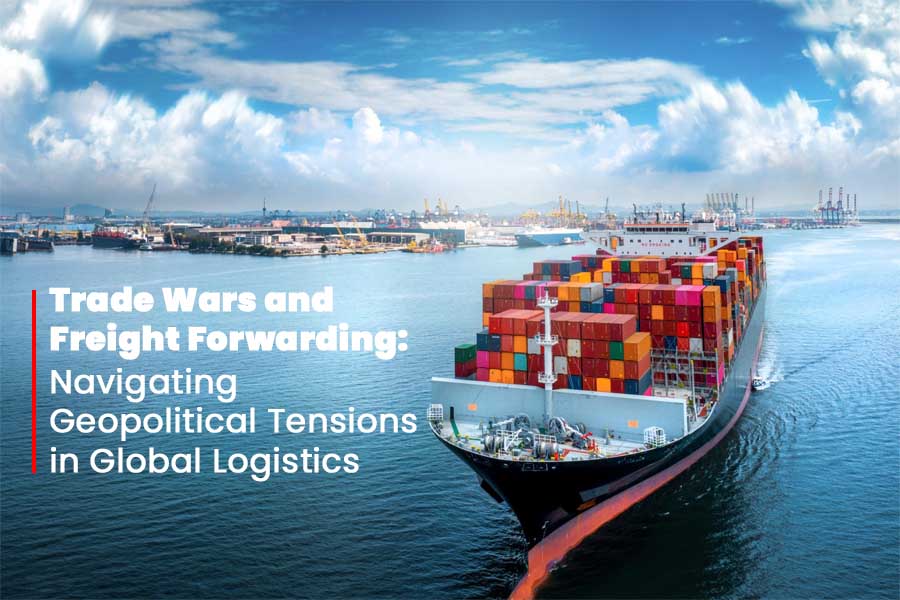
Trade Wars and Freight Forwarding: Navigating Geopolitical Tensions in Global Logistics
In today’s interconnected world, global trade is the lifeblood of economies, facilitating the exchange of goods and services across borders. However, recent years have seen a surge in geopolitical tensions and trade conflicts, disrupting traditional supply chains and posing significant challenges for freight forwarding companies worldwide. In this blog post, we delve into the complexities of trade wars and explore how freight forwarders are navigating these geopolitical minefields to ensure the smooth flow of goods in global logistics.
Trade wars, characterized by tariffs, sanctions, and other protectionist measures, have become a prominent feature of international relations. The escalation of such conflicts, notably between major economic powers like the United States, China, and the European Union, has created uncertainty and volatility in global markets. For freight forwarders, who serve as intermediaries in the supply chain, these tensions translate into operational challenges and strategic adjustments.
One of the primary impacts of trade wars on freight forwarding is the fluctuation in shipping routes and transportation costs. As tariffs are imposed on certain goods, companies may seek alternative sourcing locations to avoid additional costs. This shift in supply chains necessitates the rerouting of cargo and the renegotiation of contracts, requiring freight forwarders to adapt quickly to changing trade dynamics. Additionally, increased tariffs can lead to higher transportation costs, affecting the competitiveness of goods in the global market and impacting the bottom line for both shippers and forwarders.
Moreover, trade wars often result in regulatory changes and compliance requirements, adding another layer of complexity for freight forwarders. With shifting trade policies and export controls, forwarders must stay abreast of the latest regulations to ensure compliance and avoid penalties. This involves investing in robust compliance programs, enhancing due diligence processes, and fostering close collaborations with customs authorities and regulatory bodies.
Furthermore, trade tensions can strain diplomatic relations between countries, leading to disruptions in logistics operations. For example, retaliatory measures such as port delays, cargo inspections, or even trade embargoes can hinder the timely movement of goods across borders. In such scenarios, freight forwarders must leverage their network of partners and agents to mitigate delays and find alternative solutions to deliver cargo efficiently.
Amidst the challenges posed by trade wars, freight forwarders are also exploring opportunities for innovation and diversification. For instance, some companies are investing in technology-driven solutions such as predictive analytics and supply chain visibility platforms to optimize routing decisions and mitigate risks associated with geopolitical uncertainties. Others are expanding their service offerings to include trade advisory services, helping clients navigate complex trade regulations and mitigate compliance risks.
Collaboration is key in navigating geopolitical tensions in global logistics. Freight forwarders are increasingly partnering with industry stakeholders, including shippers, carriers, and trade associations, to advocate for free and fair trade policies and foster dialogue between governments. By pooling resources and sharing best practices, the industry can collectively address the challenges posed by trade wars and work towards building more resilient supply chains.
Final Thoughts:
Trade wars present formidable challenges for freight forwarding companies, requiring them to navigate geopolitical tensions with agility and foresight. By embracing innovation, enhancing compliance capabilities, and fostering collaboration, forwarders can mitigate risks and seize opportunities in an increasingly volatile global trade landscape. Despite the uncertainties ahead, the resilience and adaptability of the freight forwarding industry will continue to play a crucial role in sustaining global supply chains and driving economic growth.
